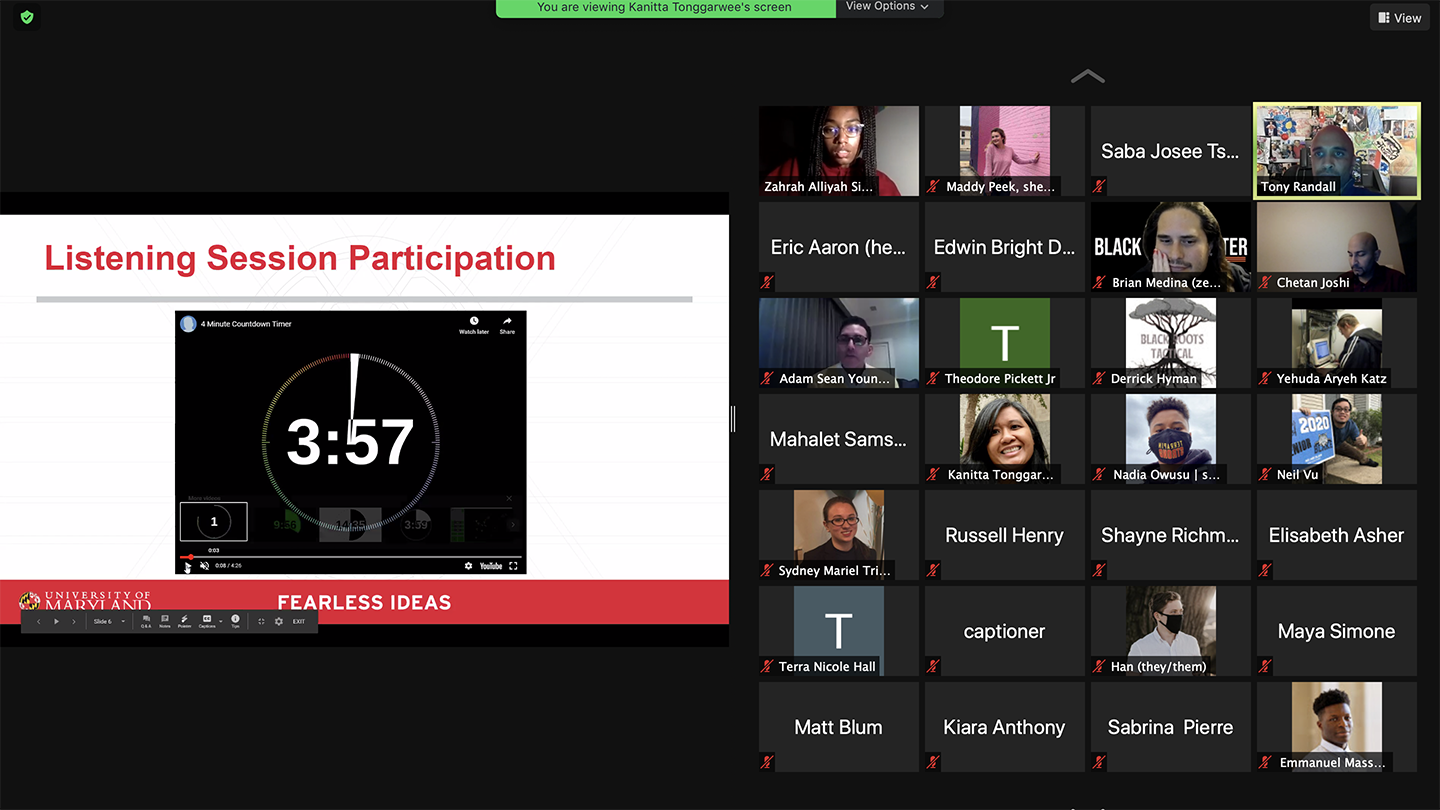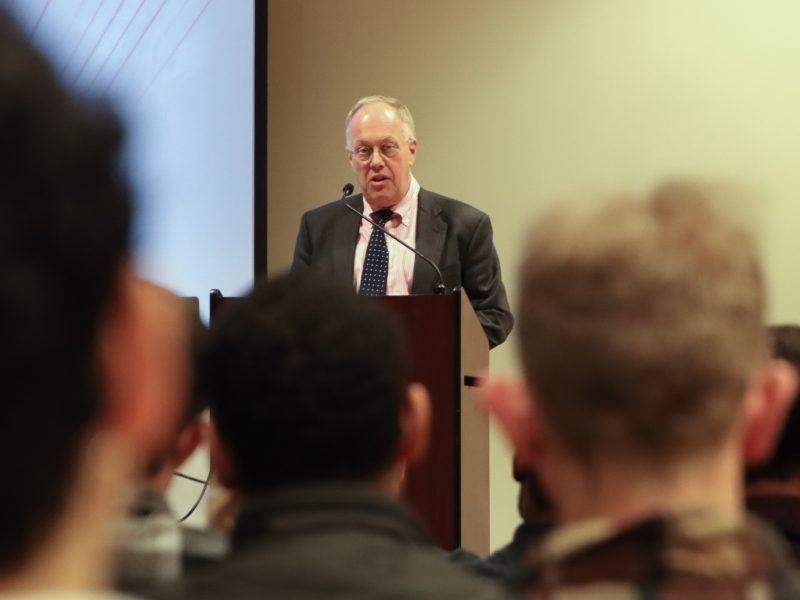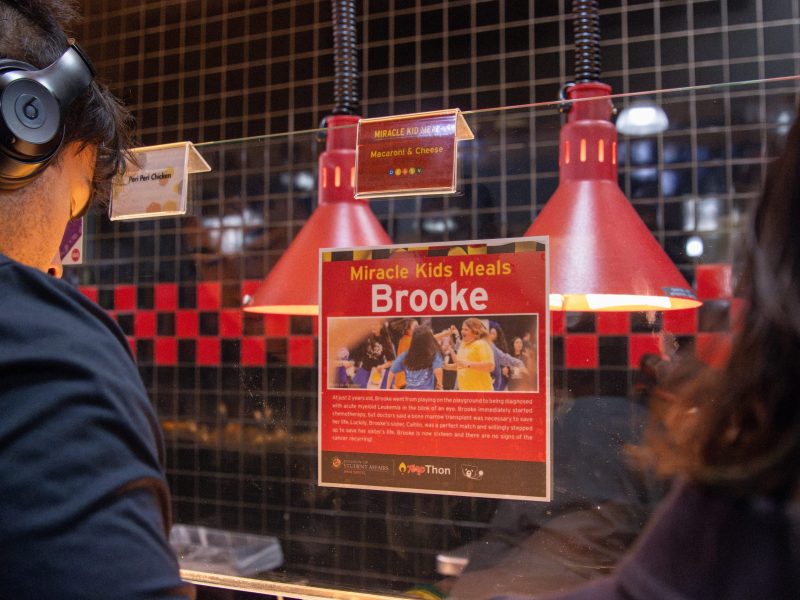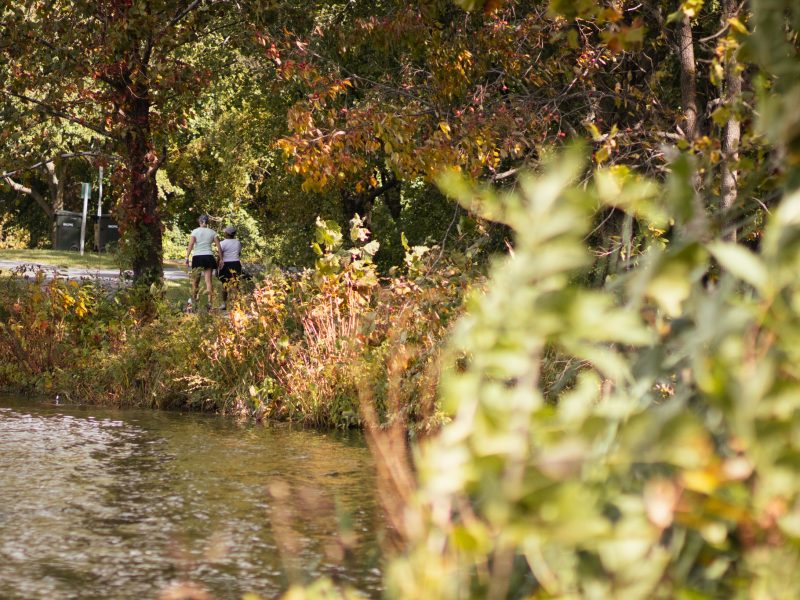On Thursday evening, University of Maryland students voiced concerns about gaps in safety, uncomfortable experiences and community relations involving University Police during a listening session for students hosted by the university’s Task Force on Community Policing.
The session was part of a semester-long process of evaluating policing on the campus. The task force met to comprehensively examine the University Police, including their policies and relationship with the community.
It will begin compiling recommendations by the end of January and submit them to university President Darryll Pines by mid-February, said Tony Randall, a co-moderator of the listening session.
Pines established the task force on July 1, after calls for the university to defund and reform the University Police
“The goal of the listening sessions is to hear directly from UMD students, faculty, and staff, as well as members of the College Park community, on ways we can enhance campus safety and community policing,” according to a statement provided by a university spokesperson. “We thank everyone who participated and contributed to the conversation. The outcome of this important work will help us create a more inclusive and safe campus community.”
The task force asked students a variety of questions, including their experiences with campus police, their understanding of the police’s messaging on the campus and where they’d like to see safety improvements.
[Pines announces partnership with Black student leaders to discuss anti-racist efforts]
The moderators encouraged students to share stories about their relationship with the police, university-affiliated or not.
One student said he grew up with a fear of police because of his mixed heritage. Another shared a story about three police officers appearing at his dorm room one night asking if he and his friends were smoking weed. A third student spoke about an experience when police responded to an off-campus apartment for a noise complaint with their hands on their weapons, making the student uncomfortable.
Other students said they did not have a comprehensive understanding of the police’s role on the campus and the resources available to students.
Bright Djampa remembered that even during the police’s orientation presentation, he was confused about how the police approached protecting and getting to know the community.
“I thought that was a huge problem that I didn’t know anything about what they were really doing in terms of work,” said Djampa, a junior nutrition and food science major.
Eric Aaron said University Police communicated clearly about how they operated in the community during the orientation presentation, particularly about how they prevent the use of fake IDs — but they haven’t followed through on those claims.
“They seem very strict on a lot of the stuff they’re not strict on, if you go down Route One on a Friday or Saturday night,” the junior music and music education major said. “I don’t see any monitoring down there.”
[New UMD President Pines shares plans for mental health care, community policing and more]
Alexandra Marquez, a senior anthropology and journalism major, said she felt Guilford Drive was not particularly safe because it wasn’t well-lit, which has increasingly become a problem with it getting darker early and she wants to go on runs outside rather than at the gym due to the coronavirus pandemic.
When asked where on the campus students feel safe, Emmanuel Massalee noted that as a Black man, it’s difficult to feel safe anywhere – particularly at nighttime.
“I don’t really feel safe anywhere on campus” Massalee, a senior independent studies major said. “There’s always reports of someone getting robbed or something, and on top of that, a Black guy has been stabbed on campus, so I don’t feel safe anywhere really.”
Students were also asked what they would like to see implemented in university police reform.
Saba Tshibaka, a leader of student group Black Terps Matter, spoke about the demands the organization released in July, including the demilitarization of University Police and reevaluating their budget.
Other students chimed in with ideas they thought would bring more transparency and community building to University Police. To improve these relations, Djampa said the police could simply hold more town halls and advertise them to students.
“If they could just send out like, ‘Hey we’re having a town hall at this and this time, students attend and give your input,’ monthly — it doesn’t even have to be weekly — I think that would improve their job tremendously and frankly just let people know what they’re doing,” he said.
Djampa said he felt direct conversations with University Police are necessary so they can understand students’ emotions better.
“I think they don’t understand, or they might not feel the emotions that are coming from us, the students, unless it’s very direct,” Djampa said.



